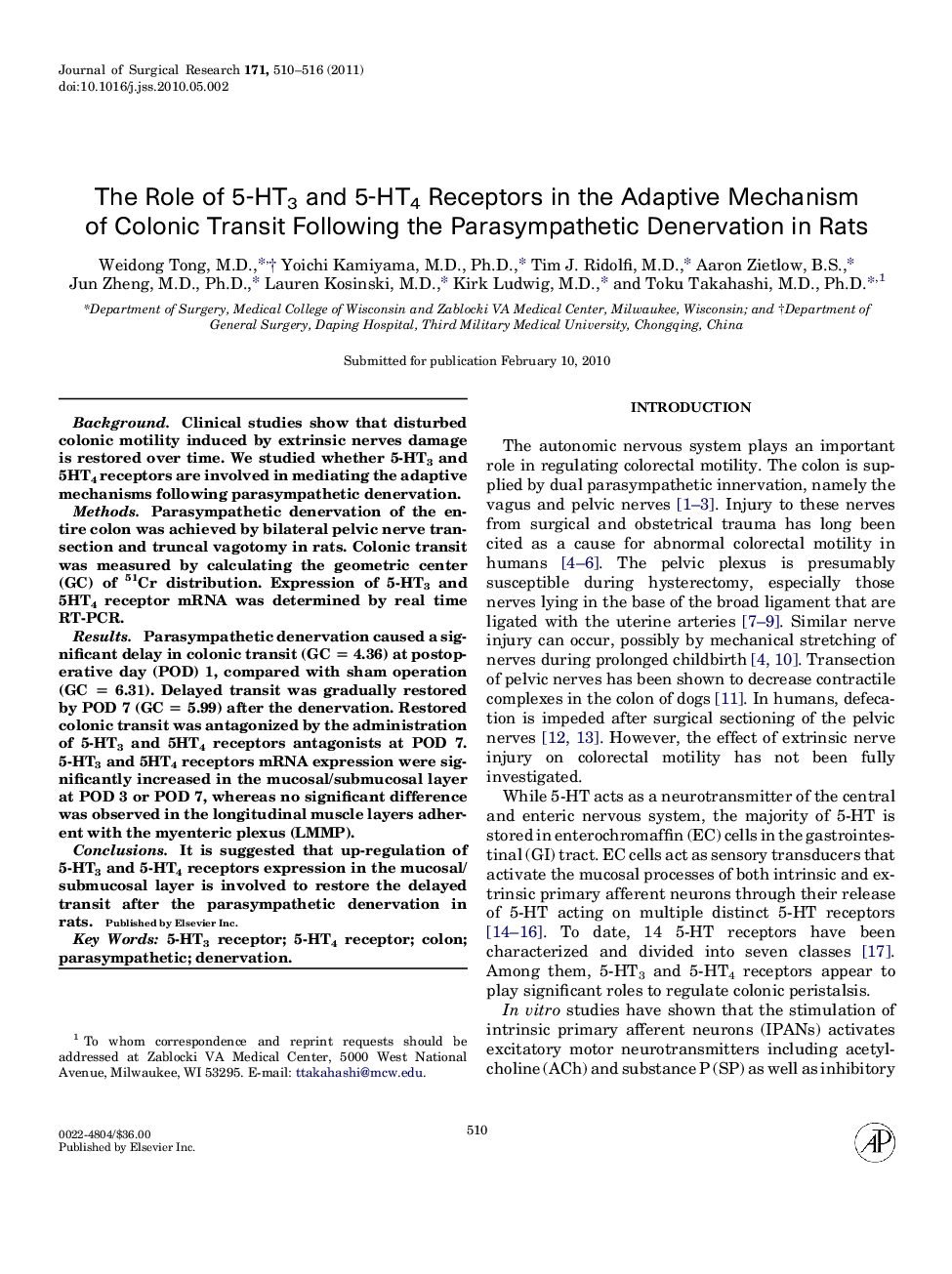| Article ID | Journal | Published Year | Pages | File Type |
|---|---|---|---|---|
| 4301842 | Journal of Surgical Research | 2011 | 7 Pages |
BackgroundClinical studies show that disturbed colonic motility induced by extrinsic nerves damage is restored over time. We studied whether 5-HT3 and 5HT4 receptors are involved in mediating the adaptive mechanisms following parasympathetic denervation.MethodsParasympathetic denervation of the entire colon was achieved by bilateral pelvic nerve transection and truncal vagotomy in rats. Colonic transit was measured by calculating the geometric center (GC) of 51Cr distribution. Expression of 5-HT3 and 5HT4 receptor mRNA was determined by real time RT-PCR.ResultsParasympathetic denervation caused a significant delay in colonic transit (GC = 4.36) at postoperative day (POD) 1, compared with sham operation (GC = 6.31). Delayed transit was gradually restored by POD 7 (GC = 5.99) after the denervation. Restored colonic transit was antagonized by the administration of 5-HT3 and 5HT4 receptors antagonists at POD 7. 5-HT3 and 5HT4 receptors mRNA expression were significantly increased in the mucosal/submucosal layer at POD 3 or POD 7, whereas no significant difference was observed in the longitudinal muscle layers adherent with the myenteric plexus (LMMP).ConclusionsIt is suggested that up-regulation of 5-HT3 and 5-HT4 receptors expression in the mucosal/submucosal layer is involved to restore the delayed transit after the parasympathetic denervation in rats.
